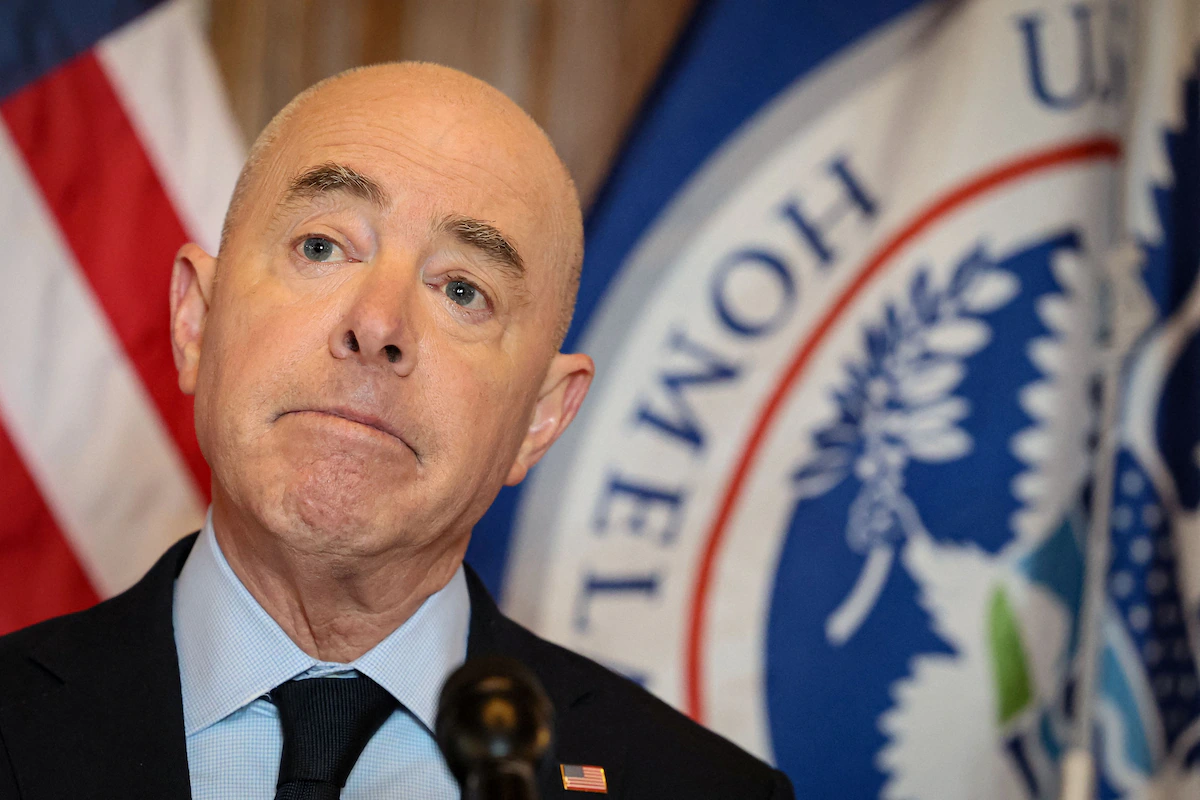The Democratic-controlled U.S. Senate swiftly dismissed impeachment charges against Homeland Security Secretary Alejandro Mayorkas, initiated by House Republicans.
The charges accused Mayorkas of neglecting U.S. border laws and lying to Congress amid a surge in illegal immigration during Biden’s presidency. With immigration a focal point of GOP campaigns, the move mirrored deep political divisions.
Mayorkas and Democrats criticized the impeachment as a partisan tactic rather than addressing legitimate offenses.

White House spokesperson Ian Sams denounced the impeachment as baseless and unconstitutional, accusing House Republicans of prioritizing political stunts over bipartisan border security reforms.
Despite bipartisan efforts, a Senate deal to impose stricter immigration limits was thwarted by Trump earlier in the year.
Republican House Speaker Mike Johnson criticized Senate Democrats for endorsing what he deemed “dangerous open border policies.”
Border Patrol data revealed over 1 million migrant arrests at the U.S.-Mexico border in six months, reminiscent of record highs during Biden’s tenure.
Mayorkas, a former federal prosecutor born in Cuba, attributed the surge to Congress’ failure to modernize immigration laws.
The impeachment process was tumultuous, with initial votes narrowly failing before succeeding in subsequent attempts.

The Senate outcome, orchestrated by top Democrat Chuck Schumer, shielded Mayorkas from trial, angering Republicans who demanded a full examination of the charges.
Senate Minority Leader Mitch McConnell urged thorough consideration, highlighting the unprecedented crisis at the southern border.
Ultimately, the dismissal marked only the second time in history a cabinet member faced impeachment, echoing the 1876 case involving President Ulysses S. Grant’s secretary of war, William Belknap, who was acquitted by the Senate over corruption allegations.





